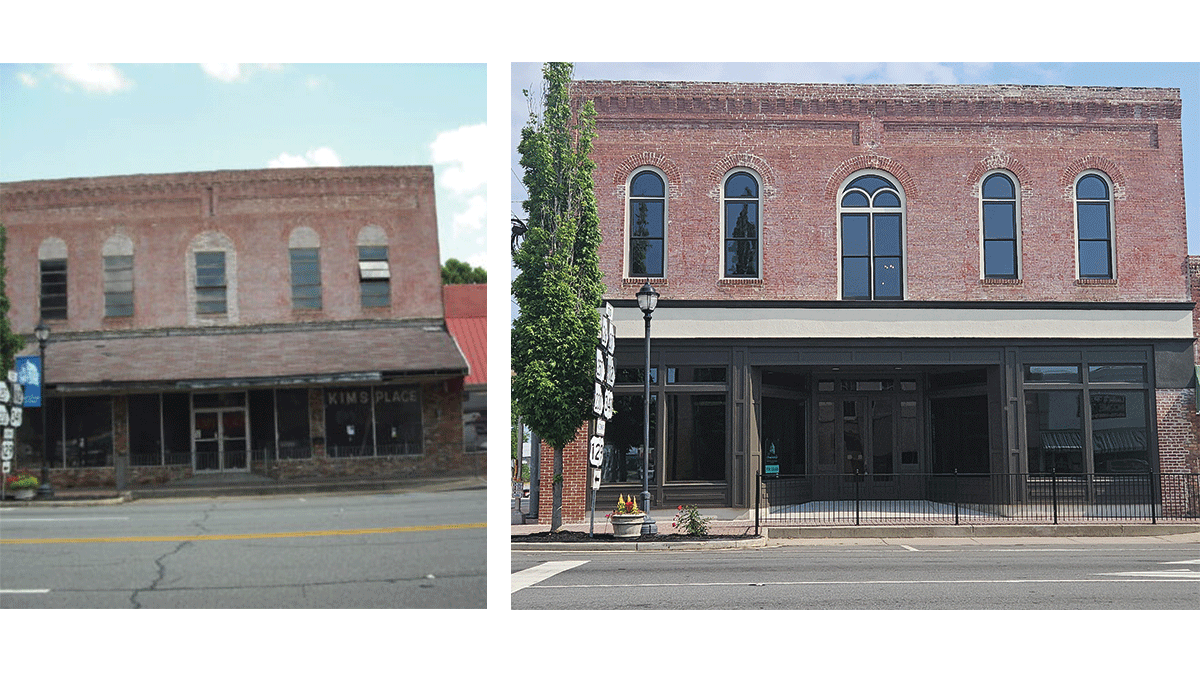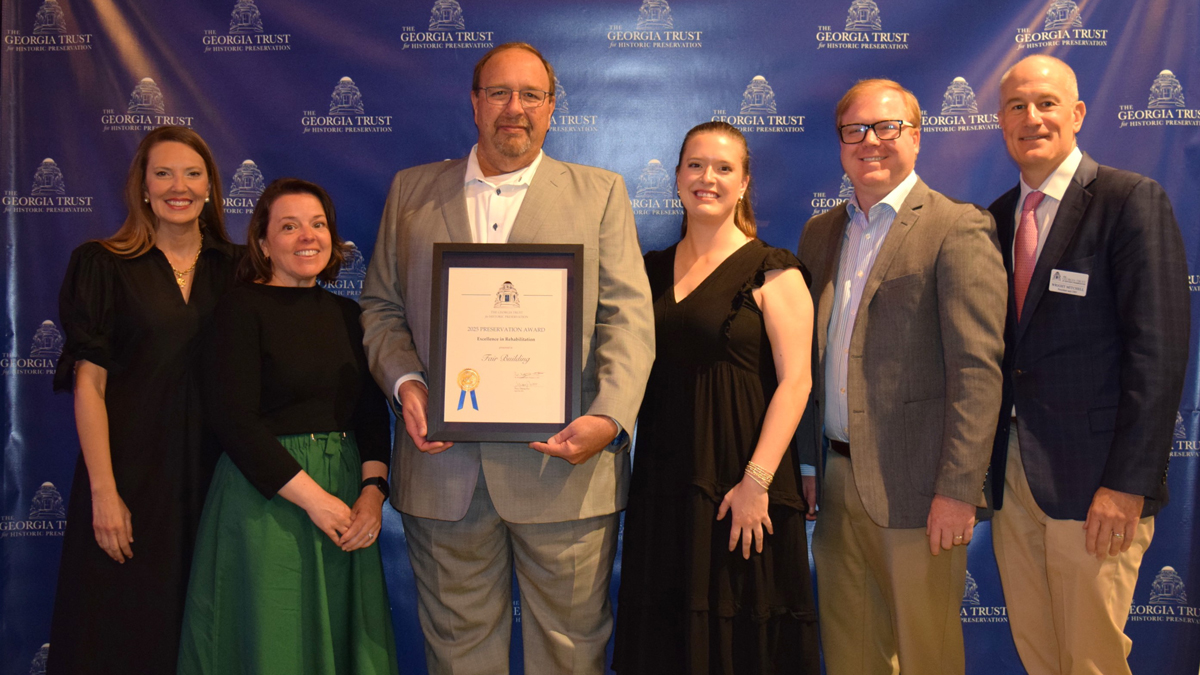UGA Institute of Government plan a catalyst for revitalization of award-winning Fair Building
The owner of a renovated building in downtown Hawkinsville recently honored by the Georgia Trust for Historic Preservation credits the University of Georgia Carl Vinson Institute of Government with setting the stage for its rebirth.
The community has worked with UGA for more than a decade and in 2020 embarked on a Renaissance Strategic Vision and Plan project to re-envision its downtown. The RSVP process helps cities create a community-supported downtown vision, plan and implementation program. Coordinated through the UGA Institute of Government, the RSVP is both a master planning process and a downtown planning document that illustrates a community’s vision for the future.
“The Renaissance Strategic Vision and Plan (RSVP) really kick-started us by providing a game plan to follow, showing us the direction we needed to go in, and how to get there,” said Ken Clark, a local restaurateur and city commissioner.

Built in 1895, the Fair Building rehabilitation peeled back layers of alteration to reveal its historic character. Exterior work involved restoring windows to match original photos and replacing the storefront with a historically appropriate design.
Built in 1895, the Fair Building received the 2025 Excellence in Rehabilitation award from the Georgia Trust for Historic Preservation at a ceremony in Brunswick, Georgia. The trust praised the project for meticulously restoring the structure’s original wood floors, coffered ceilings, doors and transoms.
The brick structure has come a long way since Clark acquired it about four years ago. On the verge of falling in, the building was in such poor condition that workers had to wear rain suits inside during remodeling.
“We didn’t realize the extent of the damage until we started peeling it back like the skin of an onion, and it was much worse than we thought,” he explained.
Now the Fair Building houses a fine dining restaurant on the street level with three loft apartments upstairs. Clark has a waitlist for the lofts and five apartments in another renovated building down the street.
To help fund the project, Clark sought state and federal tax credits to reinvest in his community, which covered about 45% of the nearly $1.4 million renovation.
Cleaning up vacant buildings and storefronts was the most critical issue facing downtown Hawkinsville, according to community input gathered as part of the institute’s strategic visioning process.
Local champions like Clark are instrumental in addressing such issues, said Danny Bivins, Institute of Government faculty and principal investigator of the Hawkinsville RSVP plan.
“Ken has played a major role in preserving the city’s architectural heritage by saving and rehabilitating multiple historic buildings, helping to revitalize the downtown and support economic growth,” he said.
Clark also wrote the grant application that secured $5.4 million to transform streetscapes and traffic flow through the main downtown corridor. He attributes the community’s progress to an engaged steering committee and a receptive city and county government.
“The group of people we have working is not one person or one project, it’s a lot of people coming together with one goal and one vision. We just get in, get it done, and move on to the next project–that’s the most beneficial thing we have going right now,” he said.
Hawkinsville and Pulaski County’s success also represents the collaborative impact of UGA Public Service and Outreach. Hawkinsville and Pulaski County became an Archway Partnership community in 2009. They invested in strategic branding through the Institute of Government in 2019. The Archway Partnership helped facilitate designs created by College of Engineering students, which supplemented the grant application for streetscape funding. And the community continues to focus on long-term growth through PROPEL, the institute’s award-winning rural economic development program.
“With a community our size, there’s no way we could go out and hire consulting firms to do the branding or the RSVP. It would be so expensive that there’s no way we could do it,” Clark said. “If not for the University of Georgia, we would not have these plans, and we would not have a clear vision of where we’re going.”
